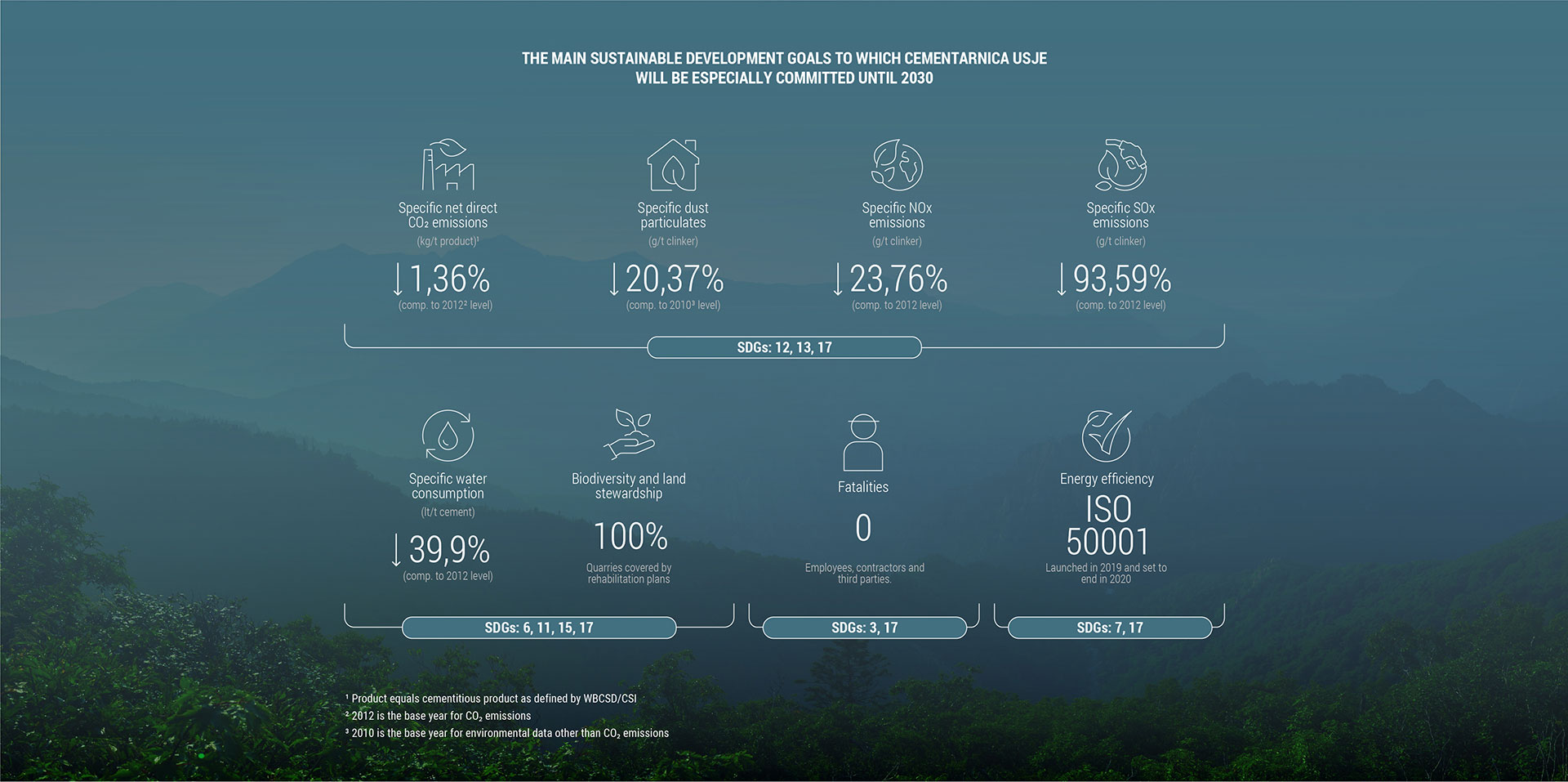
Climate change is one of the greatest challenges facing humanity and the entire planet. Rising global average temperatures will cause rising sea and ocean levels, heavy rainfall in some areas and prolonged droughts in others, which will have a significant negative impact on agriculture, health, biodiversity and clean water supply.
Global cement production is cited as one of the major anthropogenic sources of carbon dioxide emissions into the atmosphere, which in turn is one of the causes of the so-called "greenhouse effect", which is pointed to as the main culprit for global warming. Therefore, this issue is considered to be one of the most important environmental challenges by TITAN Group, and therefore in our plant as part of it as well.
In accordance with TITAN Group's policies and practices, Cementarnica USJE regularly follows the Sustainability Guidelines for the monitoring and reporting of CO2 emissions from cement manufacturing published from Global Cement and Concrete Association (GCCA). In accordance with this Guideline, the calculation and reporting of CO2 and energy in Cementarnica USJE are performed regularly, even though this is not an obligation under the national legislation in this field.
In addition to measures for directly curb CO2 emissions, Cementarnica USJE implements technological solutions that enable the reduction of energy needs, which indirectly contributes to reducing greenhouse gas emissions. In the past few years, Cementarnica USJE has implemented numerous projects to improve energy efficiency, such as replacing and modernizing the indoor and outdoor lighting, conducting an Energy Efficiency Study and implementing detailed energy audits of its buildings. The installation of variable speed drives (VSDs) on the kiln fans, optimization of the mills' operating parameters, waste heat recovery from the compressor station, as well as other measures that have enabled an effective reduction of energy consumption have also contributed to the improvement of energy efficiency, thus indirectly promoting the reduction of the total greenhouse gas emissions into the atmosphere.



